#2022 Caribbean News
Explore tagged Tumblr posts
Photo



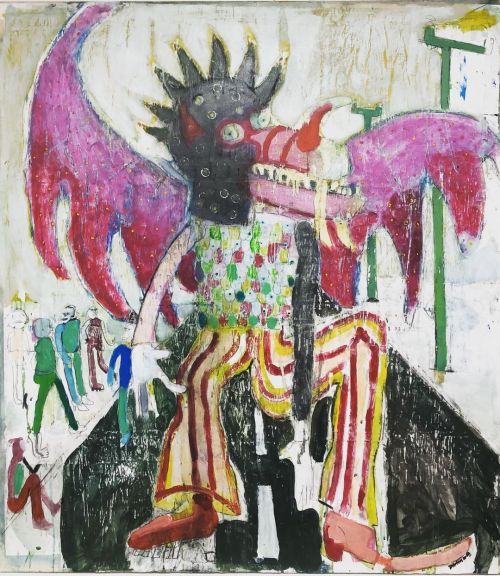







S E X Y P I N K
Another year of highest highs and devastating lows greeted us in 2022. We had much for which to be happy and hopeful, sad and hurt. But the Art keeps us alive and for that we are all extremely grateful. Here is to 2023. We shall persevere and be stronger than ever because that is what ART does.
#sexypink/year in review#sexypink/Akuzuru#sexypink/Dean Arlen#sexypink/Althea McNish Retrospective in London#sexypink/Y Gallery &ARTSY#sexypink/new sculpture in Port-Of-Spain#sexypink/The Lord Kitchener is honored at 100#sexypink/Mark Perriera is murdered#tumblr/Art in the Caribbean#sexypink/Documenta 15#tumblr/2022 review#sexypink/Sheena Rose#tumblr/2023#2022#2023#art#culture#sculpture#installation#shows#galleries#studios#writing on Art#art news
2 notes
·
View notes
Text
Daddy Yankee - Gasolina 2004
"Gasolina" was released as the lead single from Puerto Rican rapper Daddy Yankee's 2004 album Barrio Fino in the US in October 2004. By November 6, WSKQ-FM in New York City reported "Gasolina" in their top 10 rotation, and WRTO-FM in Florida said the song was their number one most-played track. It entered the US Billboard Hot 100 chart a week later, rising to number 32 in January 2005. "Gasolina" was a hit in North America and the Caribbean, gaining Daddy Yankee popularity among Latino mainstream music fans. In July 2005, "Gasolina" was released as a single in the UK, eventually earning a Silver certification in March 2019. Australia saw the single enter their charts in late January 2006 during their summer season, rising to number 12. "Gasolina" was the first reggaeton song to be nominated for the Latin Grammy Award for Record of the Year. Puerto Rican reggaeton singer Glory sings the line "dame más gasolina", although she is not credited.
In 2015, the song was ranked number nine on the "50 Greatest Latin Songs of All Time" list according to Billboard. In 2018, it was ranked number 38 on Rolling Stone's 50 Greatest Latin Pop Songs. In 2017, it was included on Billboard's "12 Best Dancehall & Reggaeton Choruses of the 21st Century" at number eight. In 2021, it was ranked number 50 on Rolling Stone's "500 Greatest Songs of All Time", and a year later it was ranked at the first place on their 2022 "100 Greatest Reggaeton Songs of All Time" list. In 2023, "Gasolina" was selected by the Library of Congress for preservation in the United States National Recording Registry as being "culturally, historically, or aesthetically significant." The song was used in the 2023 movie Fast X / Fast & Furious 10.
"Gasolina" received a total of 77,4% yes votes!
youtube
2K notes
·
View notes
Text
Fete List: Worldwide New Year's Caribbean Parties 2023
Fete List: Worldwide New Year’s Caribbean Parties 2023

View On WordPress
#2023 nye events#caribbean new years events#caribben nye fetes#jamaica things to do new years day#london nye 2022#nye 2023#trinidad nye#where to party for nye as a west indian
0 notes
Text
Christmas in Paradise (2022) Official Trailer - Billy Ray Cyrus, Kelsey Grammer, Elizabeth Hurley
Christmas in Paradise (2022) Official Trailer – Billy Ray Cyrus, Kelsey Grammer, Elizabeth Hurley
Christmas in Paradise – Watch The Trailer Now! In select theaters, on digital, and on demand. Starring Kelsey Grammer, Elizabeth Hurley, Billy Ray Cyrus, Nathalie Cox, Naomi Frederick, Ray Fearon, Victoria Ekanoye, Anna Greenidge, Lauren Mckennan, Vaughn Anslyn, and Rafael Emmanuel Martinez. Subscribe to the LIONSGATE: YouTube Channel for the latest movie trailers, clips, and more:…

View On WordPress
#2022 movies#Anna Greenidge#Beach#billy ray cyrus#breakups#Caribbean#Christmas in Paradise#christmas movies#Elizabeth Hurley#family#holidays#island life#Kelsey Grammer#Lauren Mckennan#lions gate#lionsgate#Naomi Frederick#Nathalie Cox#Nevis#New Movies#Official Clip#official trailer#preview#Rafael Emmanuel Martinez#Ray Fearon#realtionships#Santa Claus#sneak peek#streaming movies#teaser
0 notes
Text
My dear lgbt+ kids,
Here are some good things that happened in 2022!
January:
Canada bans conversion therapy
Greece allows gay men to donate blood (for the first time in 45 years!)
Israel legalizes surrogacy for gay couples
People in Switzerland are now able to legally change their gender without having to undergo surgery first
February:
New Zealand bans conversion therapy
Nonbinary people in Columbia are now entitled to a birth certificate with a "nonbinary" sex marker
Nayarit (Mexico) allows same-sex couples to adopt
Kuwait overrules a law that has been used to criminalize transgender people
Jowelle de Souza makes history as the first openly transgender parliamentarian in the Caribbean (Trinidad and Tobago)
March:
Chile legalizes same-sex marriage
France removes the deferral period for gay men donating blood
The United States announces an overhaul of TSA protocols to implement gender-neutral screening at checkpoints
Wales (United Kingdom) bans conversion therapy
Kristin Crowley makes history as the first openly gay (and the first female) chief of the Los Angeles Fire Department (United States)
Diana Zurco makes history as Argentina’s first openly transgender newscaster
April:
Santa Catarina (Brazil) now allows nonbinary people to change their gender marker without having to file a lawsuit
Jalisco (Mexico) bans conversion therapy
The United States issues the first passport with a nonbinary gender 'X' option
May:
Greece bans conversion therapy
Lithuania allows gay men to donate blood
Croatia allows same-sex couples to adopt
Austria removes the deferral period for gay men donating blood
June:
Hidalgo (Mexico) now punishes people offering conversion therapy with up to 3 years in prison
Quebec (Canada) allows people to be classified as a parent (rather than a mother or father) on their child's birth certificate
North Carolina (United States) no longer demands proof of surgery from people who wish to change their gender marker
Spain prohibits employment discrimination on the basis of sexual orientation, gender identity or HIV status
Kamala Harris made history by hosting the first Pride Month reception by a sitting vice president at their residence (United States)
July:
Switzerland legalizes same-sex marriage
Antigua and Barbuda legalize "same-sex behavior"
Andorra decides to legalize same-sex marriage (the law will come into effect in 2023)
Slovenia legalizes both same-sex marriage and adoption
Ariana DeBose makes history as the first queer woman of color (and the first Afro-Latina) to win an Oscar for acting (United States)
August:
India expands the definition of family to include "queer relationships"
Chile equalizes the age of consent
In Saint Kitts and Nevis, same-sex activity is no longer illegal.
Vietnam declares that homosexuality is not a disease and bans conversion therapy
Ellia Green makes history as the first Olympian to come out as a trans man (Australia)
September:
In India, the State Medical Councils can now take disciplinary action against doctors who provide conversion therapy
Cuba legalizes both same-sex marriage and adoption
Durango (Mexico) legalize same-sex marriage
Canada removes the deferral period for gay men donating blood
Kim Petras and Sam Smith make history as the first openly transgender woman and the first openly nonbinary person to reach number one on the Billboard Hot 100 (United States)
October:
Latvia allows civil unions for same-sex couples
Paraguay bans conversion therapy
Byron Perkins makes history as the first out football player at HBCU (United States)
Duda Salabert and Erika Hilton make history as the first two openly transgender people elected to the National Congress of Brazil
November:
Singapore decriminalizes gay sex
Singapore also lifts censorship of lgbt+ media
Hidalgo becomes the first state in Mexico to recognize nonbinary people
Ireland removes the deferral period for gay men donating blood
December:
Barbados legalizes "same-sex acts"
Here is to more good news in 2023!
With all my love,
Your Tumblr Dad
4K notes
·
View notes
Text
In 1833, Parliament finally abolished slavery in the British Caribbean, and the taxpayer payout of £20 million in “compensation” [paid by the government to slave owners] built the material, geophysical (railways, mines, factories), and imperial infrastructures of Britain [...]. Slavery and industrialization were tied by the various afterlives of slavery in the form of indentured and carceral labor that continued to enrich new emergent industrial powers [...]. Enslaved “free” African Americans predominately mined coal in the corporate use of black power or the new “industrial slavery,” [...]. The labor of the coffee - the carceral penance of the rock pile, “breaking rocks out here and keeping on the chain gang” (Nina Simone, Work Song, 1966), laying iron on the railroads - is the carceral future mobilized at plantation’s end (or the “nonevent” of emancipation). [...] [T]he racial circumscription of slavery predates and prepares the material ground for Europe and the Americas in terms of both nation and empire building - and continues to sustain it.
Text by: Kathryn Yusoff. "White Utopia/Black Inferno: Life on a Geologic Spike". e-flux Journal Issue #97. February 2019.
---
When the Haitian Revolution erupted [...], slaveholding regimes around the world grew alarmed. In response to a series of slave rebellions in its own sugar colonies, especially in Jamaica, the British Empire formally abolished slavery in the 1830s. [...] Importing indentured labor from Asia emerged as a potential way to maintain the British Empire’s sugar plantation system. In 1838 John Gladstone, father of future prime minister William E. Gladstone, arranged for the shipment of 396 South Asian workers, bound to five years of indentured labor, to his sugar estates in British Guiana. The experiment [...] inaugurated [...] "a new system of [...] [indentured servitude]," which would endure for nearly a century. [...] Desperate to regain power and authority after the war [and abolition of chattel slavery in the US], Louisiana’s wealthiest planters studied and learned from their Caribbean counterparts. [...] Thousands of Chinese workers landed in Louisiana between 1866 and 1870, recruited from the Caribbean, China and California. [...] When Congress debated excluding the Chinese from the United States in 1882, Rep. Horace F. Page of California argued that the United States could not allow the entry of “millions of cooly slaves and serfs.”
Text by: Moon-Ho Jung. "Making sugar, making 'coolies': Chinese laborers toiled alongside Black workers on 19th-century Louisiana plantations". The Conversation. 13 January 2022.
---
The durability and extensibility of plantations [...] have been tracked most especially in the contemporary United States’ prison archipelago and segregated urban areas [...], [including] “skewed life chances, limited access to health [...], premature death, incarceration [...]”. [...] [In labor arrangements there exists] a moral tie that indefinitely indebts the laborers to their master, [...] the main mechanisms reproducing the plantation system long after the abolition of slavery [...]. [G]enealogies of labor management […] have been traced […] linking different features of plantations to later economic enterprises, such as factories […] or diamond mines […] [,] chartered companies, free ports, dependencies, trusteeships [...].
Text by: Irene Peano, Marta Macedo, and Colette Le Petitcorps. "Introduction: Viewing Plantations at the Intersection of Political Ecologies and Multiple Space-Times". Global Plantations in the Modern World: Sovereignties, Ecologies, Afterlives (edited by Petitcrops, Macedo, and Peano). Published 2023.
---
Louis-Napoleon, still serving in the capacity of president of the [French] republic, threw his weight behind […] the exile of criminals as well as political dissidents. “It seems possible to me,” he declared near the end of 1850, “to render the punishment of hard labor more efficient, more moralizing, less expensive […], by using it to advance French colonization.” [...] Slavery had just been abolished in the French Empire [...]. If slavery were at an end, then the crucial question facing the colony was that of finding an alternative source of labor. During the period of the early penal colony we see this search for new slaves, not only in French Guiana, but also throughout [other European] colonies built on the plantation model.
Text by: Peter Redfield. Space in the Tropics: From Convicts to Rockets in French Guiana. 2000.
---
To control the desperate and the jobless, the authorities passed harsh new laws, a legislative program designed to quell disorder and ensure a pliant workforce for the factories. The Riot Act banned public disorder; the Combination Act made trade unions illegal; the Workhouse Act forced the poor to work; the Vagrancy Act turned joblessness into a crime. Eventually, over 220 offences could attract capital punishment - or, indeed, transportation. […] [C]onvict transportation - a system in which prisoners toiled without pay under military discipline - replicated many of the worst cruelties of slavery. […] Middle-class anti-slavery activists expressed little sympathy for Britain’s ragged and desperate, holding […] [them] responsible for their own misery. The men and women of London’s slums weren’t slaves. They were free individuals - and if they chose criminality, […] they brought their punishment on themselves. That was how Phillip [commander of the British First Fleet settlement in Australia] could decry chattel slavery while simultaneously relying on unfree labour from convicts. The experience of John Moseley, one of the eleven people of colour on the First Fleet, illustrates how, in the Australian settlement, a rhetoric of liberty accompanied a new kind of bondage. [Moseley was Black and had been a slave at a plantation in America before escaping to Britain, where he was charged with a crime and shipped to do convict labor in Australia.] […] The eventual commutation of a capital sentence to transportation meant that armed guards marched a black ex-slave, chained once more by the neck and ankles, to the Scarborough, on which he sailed to New South Wales. […] For John Moseley, the “free land” of New South Wales brought only a replication of that captivity he’d endured in Virginia. His experience was not unique. […] [T]hroughout the settlement, the old strode in, disguised as the new. [...] In the context of that widespread enthusiasm [in Australia] for the [American] South (the welcome extended to the Confederate ship Shenandoah in Melbourne in 1865 led one of its officers to conclude “the heart of colonial Britain was in our cause”), Queenslanders dreamed of building a “second Louisiana”. [...] The men did not merely adopt a lifestyle associated with New World slavery. They also relied on its techniques and its personnel. [...] Hope, for instance, acquired his sugar plants from the old slaver Thomas Scott. He hired supervisors from Jamaica and Barbados, looking for those with experience driving plantation slaves. [...] The Royal Navy’s Commander George Palmer described Lewin’s vessels as “fitted up precisely like an African slaver [...]".
Text by: Jeff Sparrow. “Friday essay: a slave state - how blackbirding in colonial Australia created a legacy of racism.” The Conversation. 4 August 2022.
#abolition#tidalectics#multispecies#ecology#intimacies of four continents#ecologies#confinement mobility borders escape etc#homeless housing precarity etc#plantation afterlives#archipelagic thinking
211 notes
·
View notes
Text
a list of some summer movies/series 🌞
hi hi hi!! it's just me, your friendly neighbourhood little organisation freak of a goblin here to give you yet again a list of some seasonal movies and series. this time, say it with me folks, summer! as always, just close your eyes and point somewhere on this little list, or even put the numbers in a generator and go with whatever the result is ♡
autumn | winter | spring
🐚 ‧₊˚ ⋅ movies ⋅˚₊‧
roman holiday (1953)
jaws (1975)
friday the 13th (1980)
Indiana jones (1981-)
dirty dancing (1987)
the princess bride (1987)
paris is burning (1990)
point break (1991)
jurassic park (1993-)
before sunrise (1995)
a goofy movie (1995)
clueless (1995)
birdcage (1996)
boogie nights (1997)
i know what you did last summer (1997)
my best friend's wedding (1997)
parent trap (1998)
bilboard dad (1998)
tarzan (1999)
the talented mr. ripley (1999)
10 things I hate about you (1999)
the mummy (1999)
cast away (2000)
almost famous (2000)
our lips are sealed (2000)
charlie’s angels (2000 + 2003)
holiday in the sun (2001)
the wedding planner (2001)
the fast and furious franchise (2001-)
princess diaries (2001-2004)
lilo and stitch (2002)
blue crush (2002)
crossroads (2002)
how to lose a guy in 10 days (2003)
under the tuscan sun (2003)
the lizzie mcguire movie (2003)
pirates of the caribbean franchise (2003-2017)
sisterhood of the traveling pants (2005-2008)
monster in law (2005)
aquamarine (2006)
she’s the man (2006)
the cheetah girls 2 (2006)
high school musical 2 (2007)
camp rock (2008)
vicky cristina barcelona (2008)
fool's gold (2008)
mamma mia (2008 + 2018)
adventureland (2009)
bride wars (2009)
hannah montana the movie (2009)
the last song (2010)
letters to juliet (2010)
eat pray love (2010)
one day (2011+2024)
a little bit of heaven (2011)
soul surfer (2011)
the impossible (2012)
magic mike (2012+2025+2023)
the big wedding (2013)
lovelace (2013)
endless love (2014)
chef (2014)
the longest ride (2015)
mad max: fury road (2015)
the shallows (2016)
it (2017)
girls trip (2017)
baywatch (2017)
jumanji: welcome to the jungle (2017)
gifted (2017)
call me by your name (2017)
crazy rich asians (2018)
adrift (2018)
ibiza (2018)
every day (2018)
bad times at the el royale (2018)
tomb raider (2018)
the red sea diving resort (2019)
midsommar (2019)
we summon the darkness (2019)
spider-man: far from home (2019)
the devil all the time (2020)
palm springs (2020)
the last letter from your lover (2021)
raya and the last dragon (2021)
luca (2021)
uncharted (2022)
glass onion (2022)
do revenge (2022)
the lost city (2022)
the gray man (2022)
death on the nile (2022)
barbie (2023)
bottoms (2023)
anyone but you (2023)
la passion de dodin bouffant (2023)
road house (2024)
the challengers (2024)
players (2024)
twisters (2024)
🍦 ‧₊˚ ⋅ series ⋅˚₊‧
the o.c. (2003-2007)
america's next top model (2003-2018)
project runway (2004-)
h2o: just add water (2006-2010)
gossip girl (2007-2012)
private practice (2007-2013)
rupaul’s drag race (2009-)
the walking dead (2010-2022)
new girl (2011-2018)
the fosters (2013-2018)
black-ish (2014-2022)
jane the virgin (2014-2019)
grace and frankie (2015-2022)
critical role (2015-)
stranger things (2016-)
the durrells (2016-2019)
big little lies (2017-2019)
she's gotta have it (2017-2019)
the bold type (2017-2021)
queer eye (2018-)
station 19 (2018-2024)
euphoria (2019-)
roswell, new mexico (2019-2022)
valeria (2020-2023)
911: lone star (2020-)
outer banks (2020-)
bridgerton (2020-)
sex/life (2021-2023)
the white lotus (2021-2025)
daisy jones and the six (2023)
#lea speaks#• comfort if you need it •#movies#comfort movies#movie recommendation#studyblr#cottagecore#dark academia#cozycore#cosycore#hygge#naturecore#tv show recommendations#summer#summer vibes#summer movies#summer aesthetic#summercore#mermaidcore#beachcore
107 notes
·
View notes
Text
It’s a Pirate Life for Me!
Why I am an adult who still believes in the pirate philosophy and is not willing to change.
An essay by: a person who really hopes future employers will never find this, but will still put their name at the end of it.
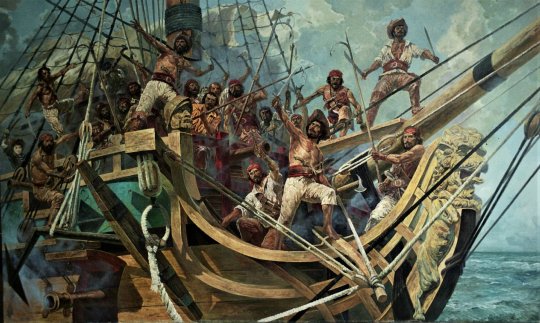
Painting credits: Pirate Boarding, Andrey Serebryakov
Can One Still Call Themselves A Pirate in the Twenty-First Century?
There are two answers to that question, and both of them are "yes".
Pirates do actually exist today: there were around 120 incidents of maritime piracy and armed robbery against ships reported in 2023 and around 115 in 2022 (source x). So yes, one can define themselves a pirate in the twenty-first century in a very literal sense; which is not what I'm trying to do here, of course.
While the world has changed and piracy has (almost) ceased to exist, thanks to stories, legends and media, the idea of piracy has become completely detached from the practice. This has led to a concept of "piracy" that has very little to do with sailing, stealing, and killing, and a lot more to do with what most things become over time: philosophy.
What no longer exists in practice in our era (and sometimes what never existed at all) has become a way of living: think about cowboys, goths, hippies, punks and so on. All these things are much more than aesthetics: each one has its own vision, its own practices, its own style, its own way of living; in other words, its own philosophy.
This text is about pirate philosophy and its origins.
First Things First: Why Did People Become Pirates?
Piracy did not appear out of nowhere in 1600; it's ancient and we have proofs of it existing as a practice since ancient Egypt (read more here). We automatically think of the seventeenth and eighteenth centuries when we talk about piracy because that period is known as the Golden Age of Piracy. Precisely between 1650 and 1730, there were thousands of active pirates, some of them infamously notorious, as Henry Morgan, Captain Kidd, Calico Jack, Bartholomew Roberts and, of course, Blackbeard himself. But why did that happen? Well, the answer is complex but can be easily summed up in a single word: money. The world was changing, and as Lord Cutler Beckett explains so brilliantly in Pirates of the Caribbean: Dead Man's Chest: currency was becoming the currency of the country, especially in England. Ruthless landowners forced small farmers to leave their lands, while smaller tradesmen were challenged by larger businesses. Everyone wanted more, and those who couldn't adapt to the new world's rules became unemployed and were forced to move to urban areas to look for work or poor relief. The cities became overpopulated and soon there weren't funds left: distressed people had no hope of making a better life (source x). For this people, piracy was nothing more than a way out: it was either submit to the new society and starve to death, or rebel and survive. What would you have done?
What Kind of People Became Pirates?
Piracy soon became the best choice for many people. Not only for unemployed men who couldn't find a better way to survive, but also for those who, for various reasons, couldn't fit in. people who couldn't conform to societal norms weren't just discriminated against or isolated, they were often killed. That's why, even though piracy wasn't an easy life at all, many people preferred it. So, who were the pirates?
Sailors usually didn't make enough money to survive, and the discipline was extremely strict. Many of them ended up starving, getting sick, and dying. It's not surprising that many chose to become criminals and sail as pirates (source x).
Teenagers, often orphans with no money or future. Young men might have to endure seven-year apprenticeships before they could make an independent living, while piracy offered them a way to earn money quickly (source x).
Rebellious against the oppressive conditions imposed by their governments, specially from the Navy.
People discriminated because of their race. Black people in particular often had no social opportunities all, but could find acceptance within pirate crews, where camaraderie transcended racial or ethnic differences.
People with a religious belief that was considered heretical or nonconformist by the mainstream society could often find themselves persecuted. Pirate crews comprised members from diverse religious backgrounds and were generally more tolerant of religious differences.
People with a criminal background, who were offered an opportunity to start anew and be part of a community, two things that the civilized society couldn't give them.
Queer people, particularly homosexual men. Homosexuality was a crime at the time, often viewed as negatively as piracy, if not worse. Piracy was a male-dominated world; although for a long time media tried to portray pirates as "turning" gay due to the absence of women among them, the truth is that many gay men were pirates because they were gay. Homosexuality was so common among pirates that they had something very similar to same-sex marriage. It was called "matelotage": a legal civil union that bound two sailors together in an informal partnership, uniting one's fortune and future to the other's, and was respected by ship captains and pirate crews (source x).
Women. The majority of pirates were men, but not all of them. In a world that was not at all kind to young girls and women in general, it was not uncommon for them to disguise themselves as men or marry a pirate in order to become one. There have been notorious women pirates, some of them captains, such as Zheng Yi Sao or Huang Bamei (source x).
In short, outcasts. Individuals rejected by society, unable to find their place, and unwilling to conform to strict societal rules.
The Adventurers
There were a few people, a minority of course, who willingly chose piracy even though they had a normal, conforming, and even wealthy life. It's the case of Stede Bonnet, The Gentleman Pirate; he was born into a wealthy English family and inherited the family estate after his father's death in 1694. Despite his lack of sailing experience, Bonnet decided he should turn to piracy in the spring of 1717. He bought a sailing vessel, the Revenge, and travelled with his paid crew, capturing other vessels and burning other Barbadian ships. His story, apart from giving us one of the best pirate stories in the history of media, is significant because it provides evidence that piracy wasn't just about necessity; it was about identity. Piracy had become a way of life long before it was romanticized by the media.
The Pirate Life
What was it about pirate life that was so tempting for so many people? Life on a ship wasn't easy at all; the work was tough, the food was poor, and anyone could die at any moment, whether due to illness, sinking, or murder. Nevertheless, there was something that made it all worthwhile: freedom. People who have had no possibilities nor future in society found in piracy the opportunity to live by their own rules. Civilization's norms had no reason to exist in an uncivilized society; no master telling you what to do, no morality, no societal standards, no need to impress or perform. If you wanted something, you simply had to find a way to get it. That meant you could possibly starve to death, but it also meant that you had a chance of getting everything you had ever desired, and eating and drinking until you died, and in the civilized society you didn't have that chance. You could choose to sail and never touch land again; you could choose to marry or not to marry, to have a family or not to have one, to sleep with whomever you wanted to, to practice your religion. You could change your name and be who you wanted to be. Pirate life was the realization of that question most of us have asked ourselves at least once: 'What if I disappear tomorrow and start all over again somewhere else?'.
Piracy in the Modern World
In our eastern, civilized, technological, capitalist society, we don't need to be part of a crew and sail to be pirates. Piracy as a practice was defeated thanks to pirate hunting in the eighteenth century, but you can't kill an idea, can you? Ideas not only persist, they evolve and adapt to the changes they're forced to face. When we say "pirate" in today's world, we mean a lot of different things:
Sea Pirate: a person who attacks and robs ships at sea;
Software Pirate: a person who appropriates or reproduces the work of another for profit without permission, usually in contravention of patent or copyright;
In Italy, we have a way to describe people who ignore the Traffic Laws, 'pirata della strada', literally 'pirate of the street';
In sexual slang, the word 'pirate' is used to define someone who sleeps around, who constantly looks for casual sex.
The term 'ass pirate' has been used as a slur to describe homosexual men.
In short, the term in today's society is used to describe someone who breaks the rules, whether they are actual laws or societal standards.
If we consider everything piracy represents as a concept, as an idea, in modern society, and put it together, we can sum it up in three words:
Freedom, Anarchy, Resistance.
Freedom
'Freedom' is such an abstract concept it is almost impossible to define. It's widely discussed in philosophy, particularly the question: is it possible to be truly free? As soon as we built a society, in order to gain benefits, we had to partially sacrifice our freedom. We can't freely steal from our neighbors, but in doing so, we ensure our neighbors won't steal from us (at least, we hope). It's a simple concept. However, there's a line beyond which the benefits we gain aren't worth the sacrifices we make to obtain them. This has occurred repeatedly throughout history; it happened in the Golden Age of Piracy, and it was the reason why most of people chose to abandon civilization and sail as pirates, and it continues to happen every day. Whenever a social construct, or sometimes even a law, prevents you from simply existing as a person; whenever your future is dictated by your social status; whenever you're denied free time, enjoyment, rest, and happiness because you have to work ten hours a day just to be paid the minimum wage, if you're lucky enough to live in a country that has one. That isn't a freedom you willingly gave away to have a benefit. It's a freedom someone took from you before you were even born, before you could think and understand that just because everyone acts like it's the normal way of living, it doesn't mean it has to be that way.
Anarchy
It is true that, at least concerning crews, pirate society had a sort of hierarchy, in which the Captain of the ship was at the top. However, it is also true that this hierarchy could collapse at any given moment, considering the possibility of a mutiny, and that, in general, pirate society was anarchic. There has been research on the functioning of pirate society, particularly regarding its potential application in a hypothetical modern society where the value of human life and individual needs are more considered than they were during that era. Most of the work in that sense has been done by Peter Lamborn Wilson in his 1995 book 'Pirate Utopias: Moorish Corsairs & European Renegadoes'. He provides a definition of what he calls 'Pirate Utopias', that are described as "Early forms of autonomous proto-anarchist societies in that they operated beyond the reach of governments and embraced unrestricted freedom" (source x). I highly recommend reading his work and all the other research that followed it if you want to go into detail, because that's not what I'm going to do here (for now).
That being said, this is my personal take on the matter:
In our days, the discussion about Anarchy as a political belief is often ridiculed and reduced to a mere "if there were no rules, people would kill each other". That statement is true; people would. What is usually misunderstood and not taken into consideration is that people who profess to believe in Anarchy do not mean we should abolish every existing law overnight and see what happens. With 'Anarchy,' we mean a hypothetical society in which individuals are free to do as they please, and they willingly choose not to kill, steal, and hurt others because they have no interest in doing so. This hypothetical society is, of course, unachievable; it's what is called a utopia.
Most political beliefs are based on utopias (or dystopias, depending on your vision of them), because a society that strictly adheres to a pure political system is impossible to achieve. There cannot be a perfect socialist society, nor a perfect communist one, nor a perfect capitalist one, and of course, there cannot be a perfect anarchist society. What we can do, though, is aspire to one—or, to use a naval metaphor, we can set the course towards it. We can make decisions, take actions, and build societies around a specific vision.
The western society, for example, tends to a capitalistic system; in brief, money is what our society revolves around. The more money you possess, the more power you wield; your ultimate goal in life must be to gain money so that you can afford basic necessities: food, housing, healthcare and so on. Everything is privatized, leading to the rich getting richer and the poor getting poorer, being exploited by people whose only purpose is to become even more rich. Consequently, you are forced to wake up every morning at 6 am to work ten-hour shifts for minimum wage. Don't like it? You're free not to live in the capitalist society. You'll probably starve to death, end up living on the street, be marginalized, isolated, persecuted, but still. You're "free" to do it. Of course, this is not a "perfect" capitalist society, it can't be; not until Democracy exists, not until Resistance exists. Still, our society tends towards it.
'Anarchy' doesn't mean we should live in a society with no rules; it simply means we should strive towards it and build a society that is as similar as possible to that utopia, prioritizing the freedom of the individual, but without causing collapse.
Resistance
Most pirates were hardly educated enough to even understand all of that as a concept, of course. They didn't fight for a political idea, most of them fought to survive. Even though it wasn't a utopian society, they still had a shared belief: dissent. Being an outcast means to be disillusioned in how 'mainstream' society works, and we know most of them were, considering their social background. Piracy was, in its own way, a movement of resistance.
Times have changed, and we don't have to engage in naval battles to resist. As society evolved, resistance as a practice evolved with it, and hence Western society has become less and less violent, as have the harmless but powerful acts of resistance.
Every time you protest, you are resisting. Every time you talk back, you expose a normalized injustice, you rebel towards an unfair authority, you say 'no', you go against what's expected from you, you are unapologetically yourself, you refuse to adapt, you decide to ignore or bypass a senseless law, you are resisting. Every time you prioritize your free time over money, you challenge beauty standards, you don't accept a 'that's how it was always done' as a justification. Even when you have fun harder than how you're supposed to, when you rejoice louder than how's considered appropriate, every time you dance like no one is watching you, you are, somehow, resisting.
Piracy in Media
Much of our perception of things we haven't directly experienced is filtered and conditioned by media. Even when we study historical periods like the Medieval Age or the Roman Empire, a part of our understanding will always be influenced by the media we've consumed about them. This is because media is often how we were introduced to these subjects: you can get very passionate about Indiana Jones, and so get interested in studying the pyramids and ancient Egypt, only to find out pyramids are nothing like it was portrayed in the movies. Nevertheless, you got interested in studying them in the first place because of Indiana Jones, so as much as you understand and accept that that isn't the truth behind ancient Egypt, you can also accept that Indiana Jones is part of your vision of it, and that cannot change. I know Pirates of the Caribbean isn't historically accurate, as much as Our Flag Means Death and Monkey Island aren't; still, I cannot deny that they have a role in creating a general vision of Pirate Philosophy in the modern world.
There are, in my opinion, three main aspects that come out from the combination of what we know about Piracy as a historical reality and as it's portrayed by media, and those are Hedonism, Nomadism and Camaraderie.
Hedonism
Hedonism is defined as 'the prioritization of pleasure in one's lifestyle, actions, or thoughts'. It's a recurring theme in the portrayal of pirate society; from songs, to movies where Tortuga is depicted as a place where people drink, eat, have sex and fight as they please, to legends that speak of treasures to be found so one can live a life of excess.
The reason for this is related to what we already know about the history of pirates, particularly the society they escaped from. The society of the seventeenth century was extremely strict, both morally and legislatively. Sex outside of marriage was out of the question, and many things that we consider normal today were seen as affronts to decency, often punishable. To be considered a respectable man or woman, one had to follow certain rules. Additionally, many pirates came from backgrounds of extreme poverty, making them prone to indulging in every kind of pleasure when they could.
Hedonism isn't just a perpetual search for pleasure; it's actually an ethical philosophy that is grounded in pleasure (defined as the avoidance of pain as much as possible) as the only intrinsic value and therefore the only reasonable expression of ethical good. This philosophy of life can be easily connected to the anarchist society that we described earlier; a society that doesn't have rules and in which you don't have a 'place' or need to 'contribute,' since your only purpose as an individual is to pursue pleasure.
I personally believe in Hedonism as an ethical philosophy, particularly Psychological Hedonism, as much as my research of pleasure doesn't prevail on someone else's.
Nomadism
One of the things that fascinated me the most about the Pirate Life as portrayed in media, was the idea of embarking on a journey that would never end. Our society is a stationary one, and I actually think there's nothing wrong with that. My perspective on this matter has nothing to do with morality, ideology, or politics. Being stationary is good; the human species would have never evolved if it didn't stop and build the world as we know it. This is simply a personal preference and stems from my absolute intolerance and repulsion at the idea of being born and dying in the same place. I've always yearned to explore, to see as much of the world as I could. The concept of 'borders' has always bothered me; I firmly believe in cultural exchanges and in learning about how other human beings live in different parts of the world. Of course, I acknowledge that without nations, traditions, and populations that are local and bound to their territories, there wouldn't even be cultures to discover or different societies to explore. So, this is about me, not a hypothetical, utopian society. I'm the one who always wanted to travel without ever stopping; I've never felt like I belonged in any one place or that there's a good enough reason to settle in a single nation and miss out on all that there is to see out there.
Camaraderie
Pirates encompassed men and women with all different kinds of backgrounds, nationalities, beliefs, ideologies and identities. While we speak in absolutes, in a society with no moral or legislative boundaries, factors such as who you were, where you came from, who you slept with, or what you believed in simply didn't matter. You were a pirate, and that was enough.
The official definition of camaraderie is:
"A feeling of friendliness towards people that you work or share an experience with".
In this case, we could even say "towards people that you share a lifestyle with". Being realistic, in a historically accurate pirate society, it's plausible that hate towards differences and minorities still existed, considering the strict and mentally bigoted society most pirates came from. However, we're talking about individuals who chose to leave that society, probably because of its strict and mentally bigoted nature. It's reasonable to assert that this particular kind of hate was at least less prevalent in the pirate society than outside of it.
Piracy in media undoubtedly plays a significant role in romanticizing the sense of brotherhood and companionship felt among pirates; we saw Pirate Codes, Brethren Courts, battles in the name of a common ideal, epic friendships and romances, songs that speak of a union strong enough to beat death itself and slogan such as "Long Live Piracy!".
What attracts me the most about it is that camaraderie as a concept exists in basically all societies or communities with a shared aim or belief. However, there are always rules that need to be followed, and the risk of being excluded and losing the privilege of deserving such camaraderie is always present. The idea of fidelity toward one's society, community, or even nation is essential for its survival, ensuring that those in power maintain control over their adherents, citizens, or believers. The pirate society is the only one I've stumbled across that doesn't need it. The feeling of brotherhood within these people doesn't need any kind of loyalty, proper rules or the fear of losing privileges to make sure that the community keeps existing. That's because the pirate society is made up of people who have already betrayed, renounced, and lost all of their privileges to be there. All they have is that sense of brotherhood and friendship. They exist in a reality in which none of them belongs anywhere and that, somehow, becomes a sense of belonging; one that doesn't need to be continuously shown or respected, simply because it's the only thing that keeps them there.
I believe that is the only reality in which camaraderie and freedom can coexist in a society, and I think it's one of the most beautiful and powerful concepts I've ever seen portrayed.
Conclusions
We finally arrived at the end of this... yeah, let's call it 'essay'. It was more than two weeks ago when I wrote the first word. It was meant to be brief and simply a way to put in words an intimate belief. I wasn't sure if I wanted to post it, mostly because I rarely share such deep thoughts with people around me; though, I'm trying to change that. As all human beings I strive to find belonging and as a true pirate, I never found anywhere to do so. So, to find but one person who reads this until the end and finds themselves to agree with my view, it would make me immeasurably happy.
Thank you if you made it this far, even if you don't agree with a single word I've written, because you dedicated part of your time to me, and I appreciate it.
If you find syntactic errors, please consider that english isn't my first language and also that grammar is a made up concept anyway.
Don't forget to be free, to resist, to pursue pleasure as much as you can, to explore and to show camaraderie not because you have to, but for the sake of it.
Fair winds t' ye!
Imago
75 notes
·
View notes
Text
Just Friends...?: Imani Cove


Playlist for fic
Name: Imani Cove

Nicknames: Emmi, Emms, Snips, Mani Jade
DOB: November 24, 1990
Zodiac Sign: Sagittarius
Born: Houston, TX
Billed from: Houston, TX
Resides: Orlando, FL
Age: 32 (as of 2023)
Ethnicity: Afro-Caribbean (mother is from Barbados; father's family is from New Orleans)
Height: 5 foot 7
Alma Mater: Texas Southern University
Occupation: Professional Wrestler * actress *
Years Active: 2008-present
Family:
Grandmother: Evangeline Whitley

Grandfather: Charles Whitley Sr.

Younger Sister: Nylah Raine


*Notes: this is an AU in which Asuka didn't go to NXT and just went straight to the main roster. Imani takes the place of Sasha Banks in this AU but with slight changes. Imani also takes the place of Mia Yim as a surprise in the 2019 NXT Women's WarGames match, not Candice LeRae. Sasha Banks doesn't win the Women's tag titles with Bayley either times nor does she main event WM37 with Bianca Belair, Imani does. Imani's superstar level is in comparison to the likes of Bianca Belair & Becky Lynch, loved by fans and WWE Officials*
Accomplishments:
WWE:
NXT Women’s Championship (1 time)
WWE RAW Women’s Championship (2 times)
WWE Smackdown Women’s Championship (2 times)
WWE World Women's Championship (1 time, current; won at WrestleMania 40)
WWE Women’s Tag Team Championship (2 times, inaugural) with Bayley
Women’s Royal Rumble Winner (2024)
Third WWE Women’s Triple Crown Champion
Fourth WWE Women’s Grand Slam Champion
NXT Year-End Award (2 times) - Match of the Year (2016) vs. Bayley at NXT TakeOver: Dallas; Match of the Year (2019) -Team Ripley vs. Team Baszler at NXT TakeOver: WarGames
ESPY Awards:
Best WWE Moment (2021) - Imani Cove and Bianca Belair make history as the first Black Women to main-event WrestleMania 37
Bumpy Award (4 times)
Best Match of the Half-Year (2019) - surprise participant in the NXT Women's WarGames match
Tag Team of the Half-Year (2020) – with Bayley
Best Match of the Half-Year (2021) – vs. Bianca Belair at WrestleMania 37
Best Match of the Half-Year (2022) - vs. Charlotte at WrestleMania 38

Little Facts about Imani:
Imani is a graduate of the Reality of Wrestling school.
Before signing with the WWE, Imani was the it girl on the indie circuit from 2008-2015, shattering glass ceilings and expectations from fans and critics alike. She signed with the WWE in mid-2015 and would make her first appearance on NXT confronting Bayley. She would win the NXT Women's Championship at TakeOver: Dallas and begin a near 5 month feud with the former champion.
She still holds the record for longest NXT Women's Championship title reign at 502 days before being defeated by Ember Moon at TakeOver: WarGames 2017. She would make main roster debut the RAW after WrestleMania 34.
She appeared in the first ever Women's Royal Rumble at entry number 4, lasting 35:46 before being eliminated by Asuka.
In 2019, she made a surprise appearance at NXT TakeOver: WarGames as the mystery teammate for Team Ripley after Mia Yim was injured prior to the pay-per-view.
In June 2022, Imani got into a terrifying car accident while at home in Orlando. Her injuries unfortunately were bad enough that it forced her to relinquish her Smackdown Women's Title. Imani returned the RAW after WrestleMania 100% cleared to compete again.
For her WrestleMania 38 entrance, Imani paid tribute to her Houston roots. She entered the arena surrounded by drivers of slabs with her in the main car.
Her dream WrestleMania entrance is to have either Megan Thee Stallion or Kendrick Lamar performing her theme.
Imani’s entrance music is heavily influenced by a mixture of 90s/00s hip hop and 2000s grunge.
Imani loves horror movies and musicals. Very odd combo I know, but a girl likes what she likes. Her favorite horror movie is Dracula/Scream and her favorite musical is Rocky Horror Picture Show.
Right now Imani has over 13 tattoos and counting, 13 to symbolize her lucky number. And yes, a good amount of her tattoos were done on Friday the 13th.
When Imani was 13 and Nylah was 7, they went into the custody of their paternal grandparents.
When Imani was 7 years old, her father died unexpectedly while on his way home from work. According to the autopsy, he suffered a brain aneurysm while driving on the road.
Imani, though a social butterfly, tends to keep her private life extremely secretive, especially in regards to her childhood.
Imani participated heavily in sports as a teen; mainly basketball, volleyball, and track & field. She was also heavily involved in choir and her school's theater department.
Imani has her B.A. in Music from TSU. Thanks to her grandparents she is classically trained in piano and can play the guitar. There was a time before she got into wrestling that she wanted to be a singer or a songwriter.
Imani's grandmother Evangeline was terrified learning her baby wanted to be a wrestler, but she agreed to let her train on one condition: that she went to college and get a degree just in case.
A few of Imani's major wrestling influences are Rey Mysterio, Chyna, Lita, The Wild Samoans, Batista, Trish Stratus, Eddie Guerrero, and Shawn Michaels.
Imani reps her hometown teams the Houston Texans and the Houston Astros.
She is very close friends with Rhea Ripley, Bianca Belair, Bayley, Sami Zayn, Finn Balor, Samantha Irvin, Zelina Vega, Naomi, and Jade Cargill.
She met Damian Priest in 2014 during the final stretch of her indie days and the two quickly formed a friendship.
Imani is fluent in three languages: Spanish, French, and German. She knows a little Japanese and is currently learning Italian.
She has an insane sweet tooth. She loves brownies, cakes, and ice cream, especially cookies-and-cream ice cream. Her favorite candy is watermelon rings.
Imani's signature fragrance is a perfume she created at a local shop in New Orleans. It's a blend of vanilla, black orchid, and amber that she pairs with Eos Cashmere Vanilla lotion.
Imani grew up in an affluent musical family. Her grandmother was a jazz singer in New Orleans for 30 years and her grandfather played trombone for her band (that's how they met).
Imani has three pets: an orange Tabby male named Cheddar, a Maine Coon female named Satine, and a grey pitbull male named Obi that she adopted during a UK tour.
She's a BIG ass nerd. Loves Lord of the Rings, Marvel, and is currently obsessed with a show called The Legend of Vox Machina. And she plays D&D with Xavier Woods.
The first thing she did with her first big paycheck, aside from paying her student loans, was pay off her grandparents house in Houston and move them to Orlando to be close to her.
Her favorite two matches of her career so far have been her vs Ember Moon at TakeOver WarGames and main eventing WrestleMania 37 with Bianca Belair.
Her sister Nylah is 6 years younger than her. Nylah is currently finishing her Master's in Law at Howard University. Nylah plans to use her degree and become a Civil Rights Attorney.
~~~~~~
TagList:
@beibigirl124 @bossbitch-22 @bonni-98 @queencherryberry @blueblazezz @jstarr86 @just-another-side-blog @southerngirl41 @abadbitchblogs @new-zealand-chic @joannasteez @miss-kuki-nz @shamaness11 @thedeboniardevistation @crossfitjesusinblackskinnyjeans @damiansgoodgirll @terrortwinunicorn @bigstrongblackheart @rootedinrevisions @lavitabella87 @royallyprincesslilly @chaneajoyyy @gold--gucciempress @msbigredmachine @msnikkimoneypenny @cookiebelle @flawlessglamazon @wrestlingbabe @fivefootxo @adriennegabriella @joy-of-life88 @daniiwrites @glitterquadricorn @lorena26 @ambreignsfan4life @eringobragh420 @babiidee28 @madhatterbri @mzv11 @bellaamor88 @queenoftheworldisdead @wrestlingbabe @yana3sworld
#wwe fanfiction#wwe imagine#damian priest x y/n#damian priest imagine#damian priest#damian priest x reader#damian priest fanfic#wwe damian priest#wwe fic#monday night raw#friday night smackdown#the judgement day#black writers
45 notes
·
View notes
Note
I've seen people on Tumblr complain about W&C's lack of successful tours and the lack of tours in general. I don't get that though? I don't think their Caribbean tour was not successful and I don't think the lack of tours is necessarily on them. Don't they have to be coordinated with the FCDO and the host country? And yet they'll counter with "but Charles and Camilla.. oh and Sophie too!" I just don't know with them.
Although I'm curious why they haven't taken Louis on tour because they've done that with George and Charlotte when they were younger. But then again, those are three children and that's hard enough, I can't imagine touring on top of it.
The lack of tours is beyond William and Kate's control. People are complaining for the usual reason - the absence of new content to drive clicks, blog engagement, and hits.
The Waleses toured the Caribbean in 2022 as part of the Platinum Jubilee celebrations. Before that, there was no international travel for 2 years because of COVID. After that, the BRF's publicity plan was to promote Charles as King, so everyone else took a bit of a backseat. William and Kate were meant to visit Italy this past spring, but obviously Kate had a major medical crisis so their foreign travel has been put on hold. Likely Kate hasn't been given the all-clear by her doctors for a full return to work, and that's why nothing's been announced.
As for why they haven't traveled with Louis, it's simple: by the time Louis was old enough to travel with them, George and Charlotte were in school. With Kate's research on Early Years, she understands the importance of routine and regularity for little ones, which means she's probably not a fan of pulling the kids out of school for a week-plus to travel on a foreign tour, so that means no family tours during the school year. Then why don't they go on school holidays? Well, William and Kate have made it clear (through their actions) that school holidays = family time. When the kids are off school, they're also off work. (And yes, there's a lot of griping about that in certain parts of the fandom.)
Which means that the only time they're probably going to take the kids on a foreign tour is when they aren't in school or the kids are all old enough to understand their future roles. (We know that George and Charlotte understand that, given that William and Kate have been bringing them along a smidgen more often. I'm not so sure Louis is there yet.)
30 notes
·
View notes
Text
New lil Intro post since I found some things out about myself and I'm comfortable sharing:
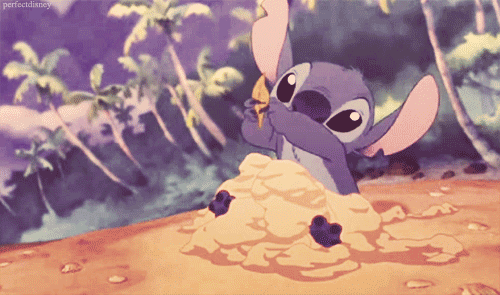
Hi I'm Hal, or Ash Shepard (call me Shepard)
I'm 27, non-binary asexual
autistic
I'm British.
My favourite hobbies are Diamond Painting, Video Games, Crochet, Reading and Writing
My favourite book series is Skulduggery Pleasant
My favourite movies are the Pirates Of The Caribbean movies
My favourite musical is Little Shop Of Horrors
My favourite Video Game Series is Mass Effect, followed by Xenoblade Chronicles
I'm a big Lilo And Stitch fan
Luigi is the best character of the Mario Universe
Latias is my favourite Pokemon
On to writing wise:
I mainly write fantasy adult novels/screenplays/short stories ect that cover Angels, Demons, Gods, Reapers and the Humans that have to cope with them and work with them ( I write other stuff too but you get the idea)
I love murder mysteries, young adult, all types of fantasy and many more things. I'll read anything so if you wanna reach out and let me read something, I'm your pal
I handwrite my wips cause it's easier on me to get thoughts and words down
I wrote 4 wips in 2022 back to back and it caused a writers block
My highest word count on a draft goes to Raising Hell draft 2 with 70k
My Wips (only some, I have so many)
Terraclaw
Speechless
Raising Hell
Not You
Wildlands
Scars Of Fate
Trials and Tribulations
With God As My Witness
I'd love to get to know you!
72 notes
·
View notes
Text
I had this idea to make a list of all the games I played in 2022, half as a recommendation list, and half because I struggle to remember when I played what. I have a really bad time ranking stuff, so I'll just list them chronologically (or, as chronologically as I can remember).
Note: Sometimes I dont have a lot to say about a game, but that doesnt mean I didn't like it or that it isn't good.
So, with that being said:

1) Our Life: Beginnings and Always

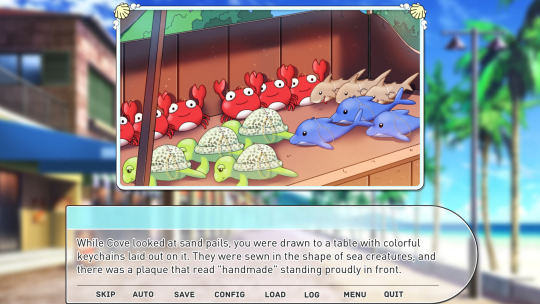
This game has put visual novels on another level entirely. How must I go on knowing that I will never be treated like royalty by any other game like this did. Our Life tells the story of your friendship and/or romance with Cove Holden, your new neighbor. This Visual Novel remembers an insane amount of stuff you choose, and it can put you in the state of mentioning something you did as a kid that you completely forgot about. I actually really liked how you can go the entire game as just friends, or choose when your character develops romantic feelings. I cannot overstate how well made this entire thing is. Can't wait to play the DLCs and for the sequel to be released.
Absolute recommend.
2) Iron Lung


If you have a computer, you can play it. It is not an option.
Claustrophobic above all, this game captures the pure dread of the unknown, building tension and atmosphere as you travel through this unknown planet's red sea. Highly recommended.
3) An Outcry
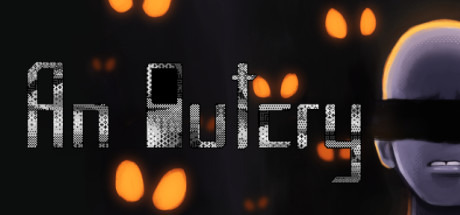

Amazing game that I don't see enough people talking about. The first game that made me actually physically ill while playing an alternative route. I don't know what hit me the most, the subject matter or the type of person I played in that route, a person I know exists and maybe I've met, a person I hope I never become. I knew what the game was specifically referencing, but I found it good that it was able to trigger that response on someone who lives in an entirely different place, with different historical events, but with enough similarities that made the feeling of dread and disgust that much real. Its message is clear and loud as it should be, and one that I think maybe now more than ever needs to be heard. I cannot recommend this game enough.
4) Stillwater
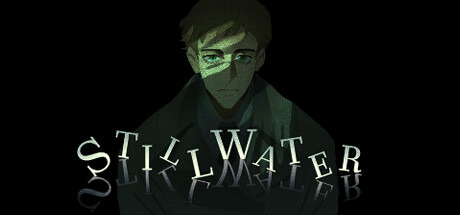

Now this is a Visual Novel that I really liked and would have loved for it to be longer, but I love it as it is. It left me wanting more about the world and its characters, and I think that's a good thing. It feels unfair that this is the one I typed the least about, knowing how much I liked it. It's really worth the read/play.
5) The Caribbean Sail
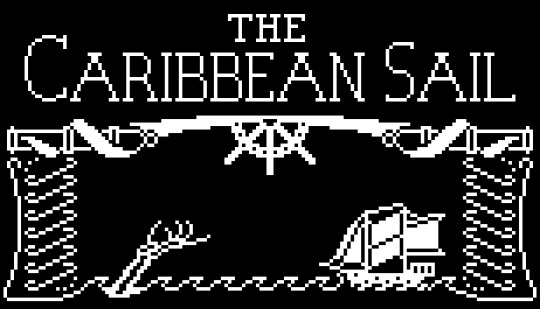
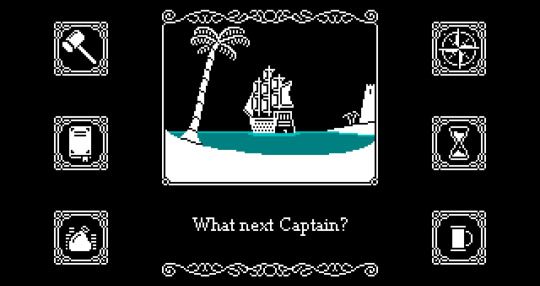
Have you ever wanted to be a sailor or a pirate? Have you ever wanted to grab a ship, sail into unknown destinations, encounter supernatural phenomenons and watch as your fellow crew members die of disentry five seconds after leaving your first port? Because if so, I have the perfect game for you. It's inspired by the Oregon Trail game, and that's literally what the gameplay is like, except on the sea. Which was enough of a selling point for me.
6) Carrion
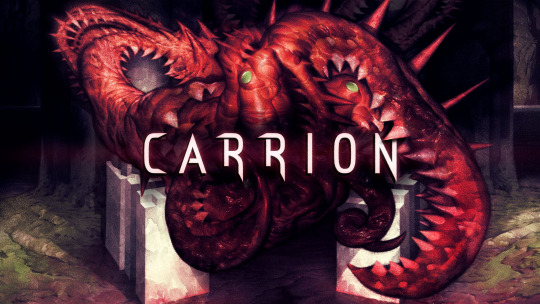

My child, it has every disease. Loved the concept when I saw the trailer, forgot I can actually buy games now, and then proceeded to do that. Being able to live my fantasies of being a flesh creature that destroys and eats everything in its path was a delight. The creature is my child and I love it very much.
We need more games that let you play as the monster, I'm serious.
7) The Life and Suffering of Sir Brante
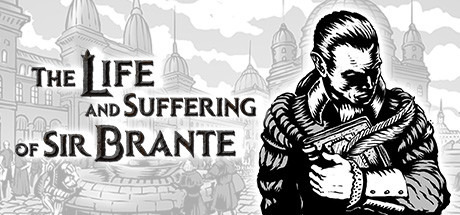
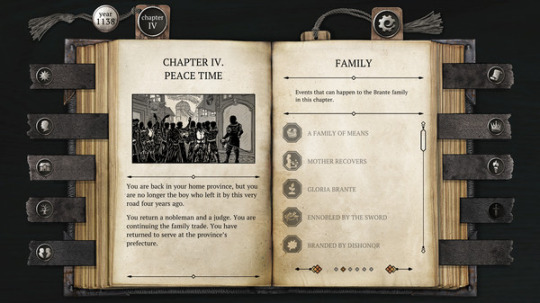
This game is both my beloved and the thorn on my side. Who would have thought that in a game like this you would proceed to suffer through life? I said to myself as if I hadn't known what I was getting into. You'll experience loss, you'll struggle to make a name for yourself, your family will fall apart, and you may never kiss your best friend Tommas who gave you a totally platonic ring to commemorate your friendship because the game doesn't want you to.
Or you'll have a different experience than me on my first playthrough.
You follow the titular Sir Brante from the moment of his birth to his last breath, exploring the world he lives in, full of injustices that at times made me go "I do not care about the lots, give me a fucking gun so I can take you to the fucking Twins". There are many branches regarding life paths, the fate of your family and that of the entire city you live in. But don't worry about it now, keep looking at those toy soldiers at the store as a little kid, I'm sure nothing will happen in the future.
8) Princess Maker 2 Refine

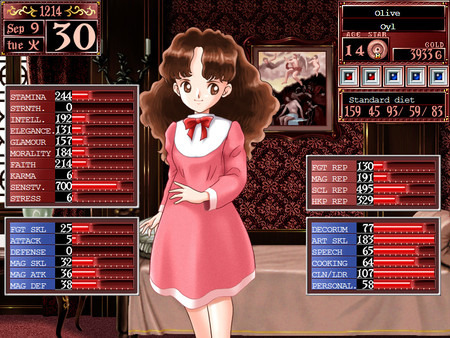
And apparently I didn't get enough of walking a kid through life.
Who looks at a game about raising a little girl by managing her monthly schedule and balancing her stats, health and money and says "yes, this is the game I'll play to destress"?
I do that. Don't ask why.
I have only reached two endings, in one my beautiful daughter became the royal painter, her art held as the most beautiful and inspiring in the entire world. In another, my girl made a name for herself by exploring the lands surrounding the kingdom, so fast on her feet nobody could even scratch her; she married a dragon prince and became the teacher of her own fighting school.
And even with all of that, her goddess mother was not happy.
So yes, this is the "divorced dad who got custody" experience.
9) Planescape: Torment
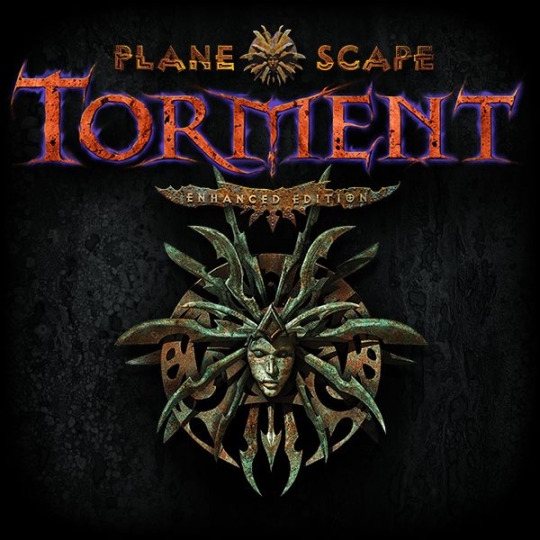

What can change the nature of a man? That is a question posed by one Ravel Puzzlewell, night hag of the Gray Wastes. It is one of the many questions that this game asks, intertwined by the many philosophies it presents. Planescape Torment does not stick to one question, it asks many, and it lets you answer.
It is a beautifully written game, one of the best I have ever read. There is one moment that I do not wish to spoil, but it still sticks to my head months after I experienced it. As a writer, I found myself fascinated by how a certain event was told, all because of the way it was presented.
It feels like an injustice to not talk in length about Planescape: Torment, but I seriously don't want to spoil anyone who hasn't played it yet. A blind experience is fully worth it. All you need to know is that this is the game that made me post for the first time here, two dumb memes for myself and one short analysis that sometimes reminds me that yes, people can interact with it. Shameless link to it here
10) Growing my Grandpa!

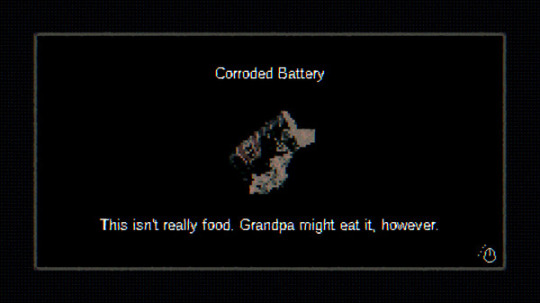
If I had to describe this game without saying too much, I would say it's "heartwarming horror". Two words that don't usually go together, but that they perfectly fit here. The story is, like the title says, about growing your grandpa, more like helping a girl grow her grandpa, but still. Strangely sweet and unnerving, I was tense the entire time, and even when I had to replay it to get the second ending (this was entirely my fault, since I could have gotten it way easier) that tension never left.
11) FAITH: The Unholy Trinity


I don't remember how I found out about this game, but I remember waiting patiently for it to get a steam release so I could buy it and play its three chapters all together. The day finally came, and all that waiting was worth it.
The gameplay is simple, yet the developers found a way to have me both crying in fear and frothing by the mouth out of anger every time I saw the game over screen (affectionately). In terms of difficulty, I would say the game is easy until it isn't, looking at you Chapter 2 and 3 Final Bosses, you bastards. Then again, I saw people say they struggled in places I didn't, so I would say it depends on the player.
The story is so interesting and it's still marinating in my brain please I need people to talk about how the prologue of chapter 2 and the one note in chapter 3 relate please. The cutscenes are also so well done, and I had to restrain myself from using one as a second picture because I didn't want to spoil any of them.
All in all, a must play, fully recommend it.
And remember:
GARY LOVES YOU
12) Inmortal Mantis


This is a tricky one. On one hand, the game starts off by basically spelling out every action you have to do, and suddenly it goes full on "fuck around and find out" mode. On the other, the game implements some interesting mechanics that I would love to see developed on a longer game, but I am not going to put the length against it while knowing how hard it is to make a game. And maybe being short plays in its favor.
13) Who's Lila?


This game is my King in Yellow. I cannot stop thinking about it. I finished it with all endings and achievements in a day, and it wont leave me alone. It is always there, forever crawling at the back of my head, stretching itself over my brain and weaving my thoughts into a spiral as easily as a spider weaves its thread. It made itself a home in my mind and I won't kick it out any time soon. I played it because the concept of controlling a character's face in place of a dialogue wheel was interesting, and the story and the way it's presented (hand in hand with the gameplay) lured me deeper and deeper. I cannot even describe it without giving it the praise it deserves. It takes full advantage of its medium. Playing this game is an experience that I can't recommend enough, and I'm surprised it hasn't gotten the recognition it deserves.
14) Someone stole MY LUNCH!
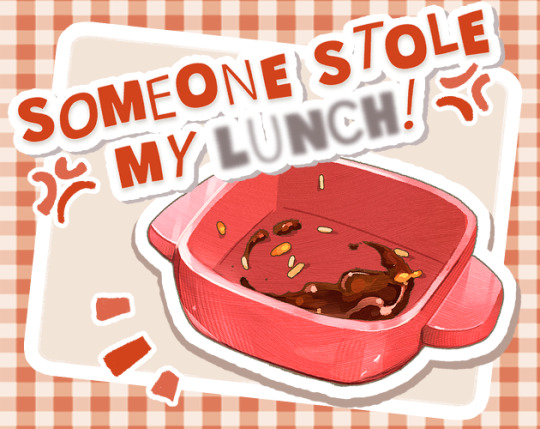

This visual novel is pure fun. The humor is so good I found myself reading the entire thing out loud while wheezing. I actually found out recently that it's made by the same people that made Stillwater, which, looking at it now I should have known. It's good and I'm not still over not seeing that one joke coming; well played.
15) MILK INSIDE OF A BAG OF MILK INSIDE OF A BAG OF MILK INSIDE OF A BAG OF MILK INSIDE OF A BAG OF-

... INSIDE A BAG OF MILK is a short visual novel about a girl going to the grocery to buy milk, and the challenge this seemingly small action can be. It is your responsibility to help her through this.
The steam page description perfectly summarizes it: "This is an artistic manipulation with word and form, only then - a game."
Reblog with more games
Or, you can jump to the 2023 list!
#already reblogged with three more games!#game recommendations#our life beginnings & always#iron lung#an outcry#stillwater visual novel#the caribbean sail game#carrion game#the life and suffering of sir brante#princess maker 2#planescape torment#growing my grandpa#faith the unholy trinity#inmortal mantis#who's lila#whos lila#someone stole my lunch visual novel#milk inside a bag of milk inside a bag of milk#lilium post
467 notes
·
View notes
Note
how many holes can the toe timeline get?? imagine your gf writing you are losing me and then you help her write sweet nothings 🥴
November2021: Taylor and Joe have a romantic time together with Jack and Margaret in Panama.
Early December: Taylor hating on Joe because he won’t marry her.
Mid December: Joe comes back from Panama and thinks everything’s great! They write sweet nothing together.
End of December they fly off to a romantic getaway in Tahiti
January: they head straight to Cornwall, a special place to joe and his family, where he proposes. Taylor’s says whoopsie I guess you do want to marry me!🥰
All the rest of 2022: happiness! Except Taylor is secretly recording joe diss tracks like Bejeweled and planning to make videos for her new album that call him a loser, all while kissing him in the Caribbean. Lena Dunham calls him a Titan of Industry. Everyone cheers.
Sept: I wanted to stay in the lavender haze and protect my relationship 6 years 😻
2023: all chaos
117 notes
·
View notes
Text
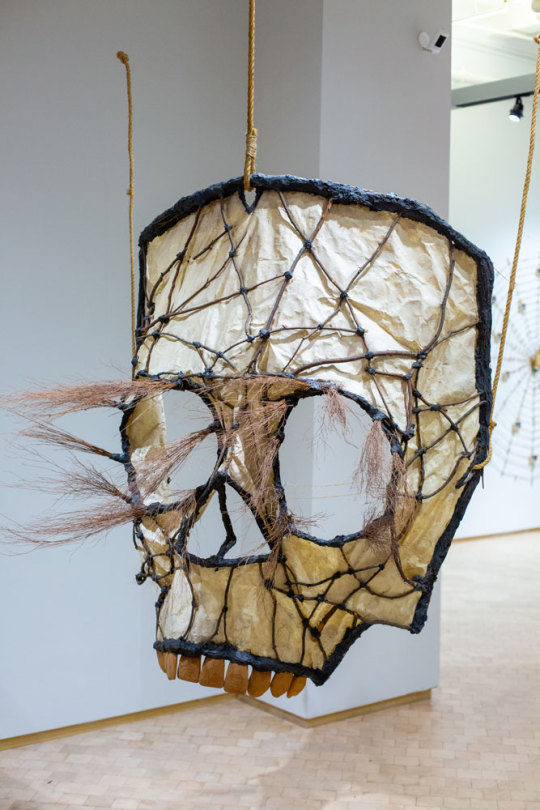
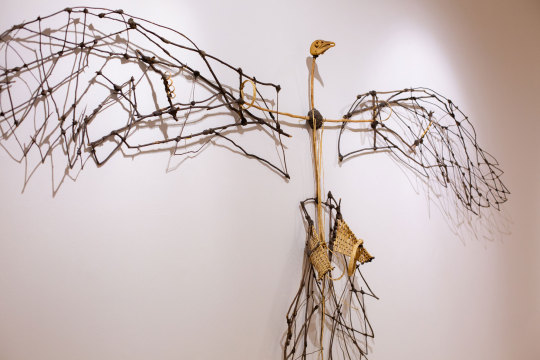
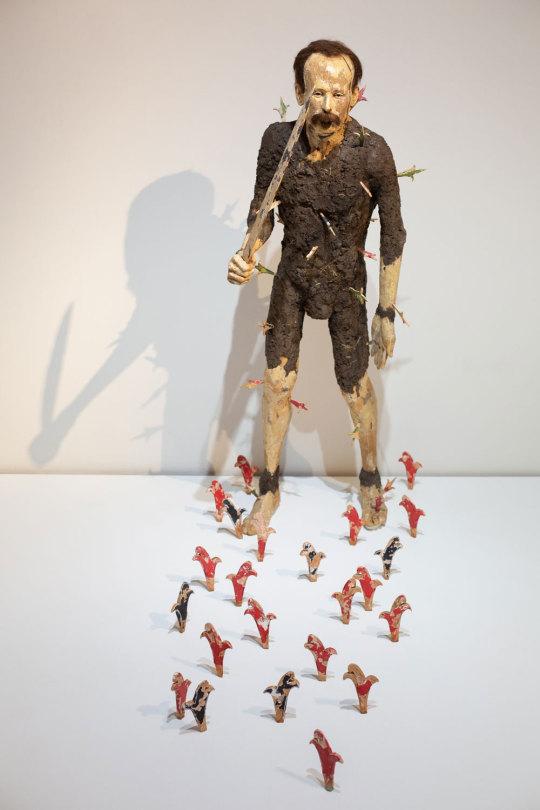
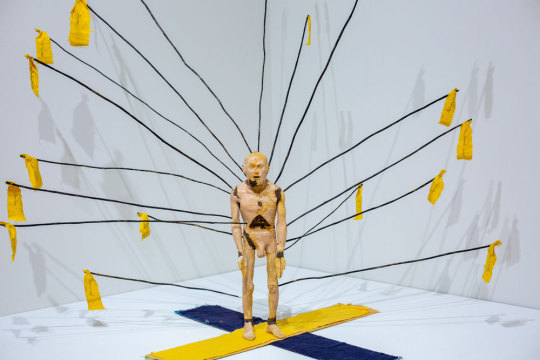

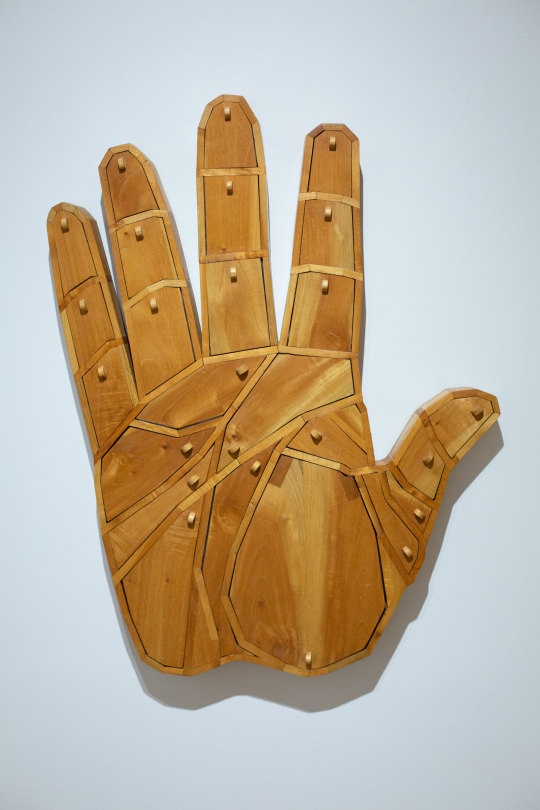
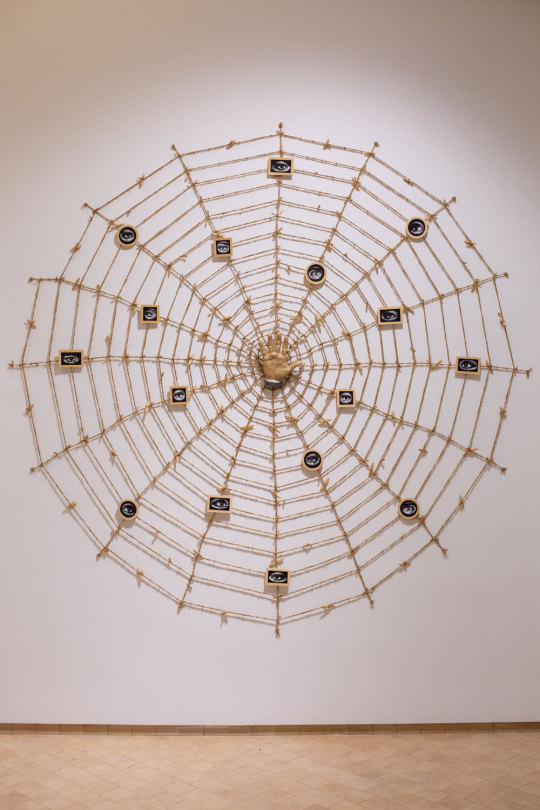
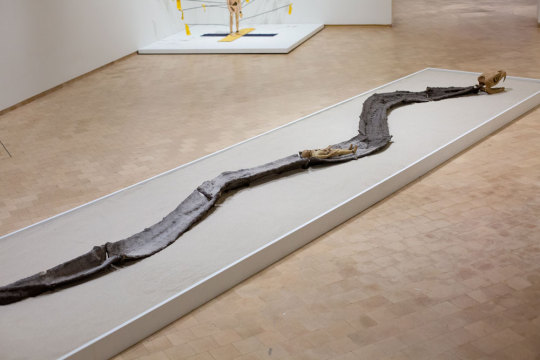
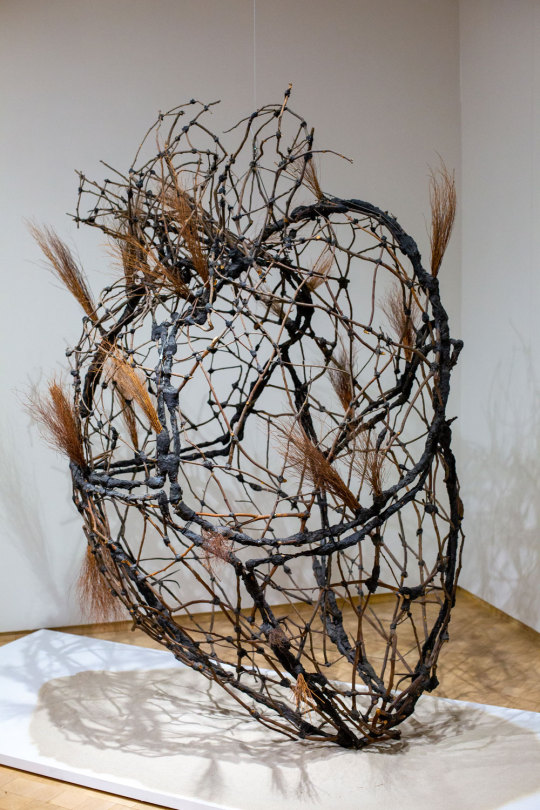
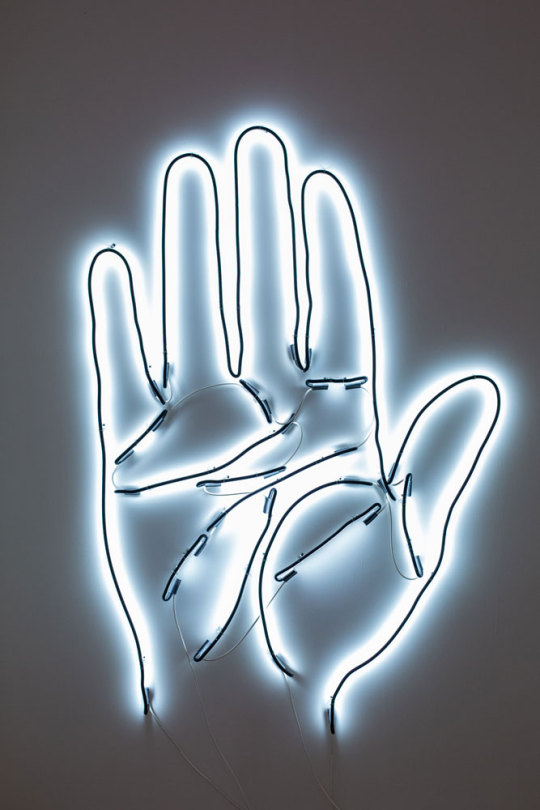
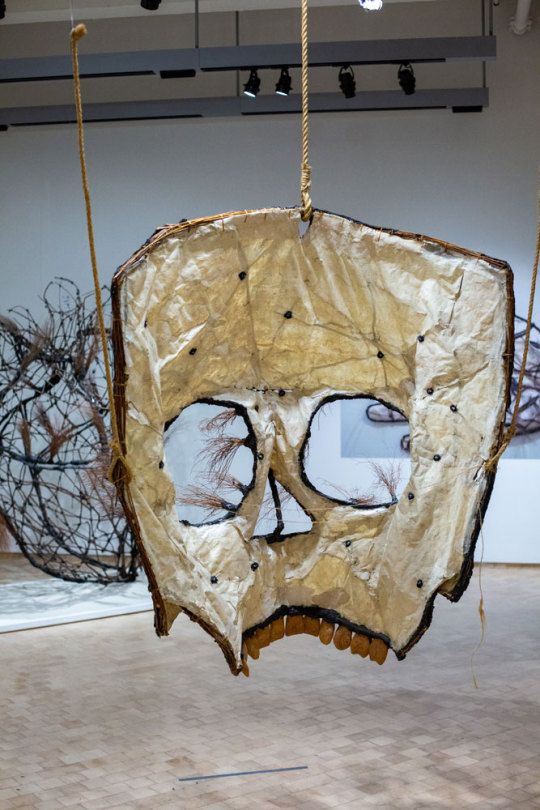
Juan Francisco Elso: Por América Exhibition at El Museo del Barrio
Juan Francisco Elso: Por América investigates the brief yet significant career of the late Cuban artist Juan Francisco Elso (1956-1988). Based in Havana, Elso was part of the first generation of artists born and educated in post-revolutionary Cuba, who gained international recognition in the early 1980’s. Created mostly using natural, organic materials, his sculptural practice examines the complex forms of contemporary Cuban, Caribbean, and Latin American identities, as inflected by the cultural influences of Indigenous traditions, Afro-Caribbean religious beliefs, as well as the traumas of colonial oppression.
Juan Francisco Elso: Por América was exhibited at El Museo del Barrio in New York City from October 27, 2022 – March 26, 2023
Photographs by Blair Prentice
#sculpture#artist#art#sculptor#art exhibition#exhibition#Cuban#Cuban artist#Juan Francisco Elso#Blair Prentice#New York City#museum#El Museo del Barrio
50 notes
·
View notes
Photo

On this day, 22 June 1948, the Empire Windrush arrived in Tilbury docks bringing the first group of 492 Jamaicans to the UK. They had answered an appeal for workers from the UK which needed to rebuild following World War II, amidst an acute labour shortage. By 1970, around half a million people from the Caribbean had arrived, and became known as the Windrush generation. Many of the arrivals were highly skilled workers, but were forced to work in low-paid and unskilled jobs due to discrimination, sometimes with the collaboration of trade unions. Others were subjected to physical attacks by racists and fascists, including at times large mobs of hundreds of people. In 1971, all prior Commonwealth arrivals were given automatic, permanent right to remain. But in 2010 the government destroyed all the landing cards from ships, which recorded when migrants arrived. And in 2012 the Liberal Democrat-Conservative coalition government introduced a policy called the "hostile environment", which was aimed at trying to force some migrants to leave. The Home Office was aware in 2013 that legal Windrush generation residents were being targeted by its policy, which included having private contractor Capita write to residents telling them they were in the country illegally and had to leave. Others were illegally denied NHS treatment for conditions like cancer, detained, deported or refused re-entry to the country, and many were wrongly sacked from their jobs. Outrage eventually caused a government climbdown and pressured them into providing compensation to those affected. But despite an estimated 15,000 people being eligible for up to £570 million compensation, as of June 2022 only around 1000 people had received any compensation. More information, sources and map: https://stories.workingclasshistory.com/article/9495/Empire-Windrush-arrives Picture: new arrivals on the Windrush on this date https://www.facebook.com/photo.php?fbid=648550490651503&set=a.602588028581083&type=3
227 notes
·
View notes
Text
Just in case, some might enjoy. Had to organize some notes.
These are just some of the newer texts that had been promoted in the past few years at the online home of the American Association of Geographers. At: [aag dot org/new-books-for-geographers/]
Tried to narrow down selections to focus on Indigenous, Black, anticolonial, Latin American, oceanic/archipelagic geographies; imaginaries and environmental perception; mobility, borders, carceral/abolition geography; literary and musical ecologies.
---
New stuff, early 2024:
A Caribbean Poetics of Spirit (Hannah Regis, University of the West Indies Press, 2024)
Constructing Worlds Otherwise: Societies in Movement and Anticolonial Paths in Latin America (Raúl Zibechi and translator George Ygarza Quispe, AK Press, 2024)
Fluid Geographies: Water, Science, and Settler Colonialism in New Mexico (K. Maria D. Lane, University of Chicago Press, 2024)
Hydrofeminist Thinking With Oceans: Political and Scholarly Possibilities (Tarara Shefer, Vivienne Bozalek, and Nike Romano, Routledge, 2024)
Making the Literary-Geographical World of Sherlock Holmes: The Game Is Afoot (David McLaughlin, University of Chicago Press, 2025)
Mapping Middle-earth: Environmental and Political Narratives in J. R. R. Tolkien’s Cartographies (Anahit Behrooz, Bloomsbury Publishing, 2024)
Midlife Geographies: Changing Lifecourses across Generations, Spaces and Time (Aija Lulle, Bristol University Press, 2024)
Society Despite the State: Reimagining Geographies of Order (Anthony Ince and Geronimo Barrera de la Torre, Pluto Press, 2024)
---
New stuff, 2023:
The Black Geographic: Praxis, Resistance, Futurity (Camilla Hawthorne and Jovan Scott Lewis, Duke University Press, 2023)
Activist Feminist Geographies (Edited by Kate Boyer, Latoya Eaves and Jennifer Fluri, Bristol University Press, 2023)
The Silences of Dispossession: Agrarian Change and Indigenous Politics in Argentina (Mercedes Biocca, Pluto Press, 2023)
The Sovereign Trickster: Death and Laughter in the Age of Dueterte (Vicente L. Rafael, Duke University Press, 2022)
Ottoman Passports: Security and Geographic Mobility, 1876-1908 (İlkay Yılmaz, Syracuse University Press, 2023)
The Practice of Collective Escape (Helen Traill, Bristol University Press, 2023)
Maps of Sorrow: Migration and Music in the Construction of Precolonial AfroAsia (Sumangala Damodaran and Ari Sitas, Columbia University Press, 2023)
---
New stuff, late 2022:
B.H. Roberts, Moral Geography, and the Making of a Modern Racist (Clyde R. Forsberg, Jr.and Phillip Gordon Mackintosh, Cambridge Scholars Publishing, 2022)
Environing Empire: Nature, Infrastructure and the Making of German Southwest Africa (Martin Kalb, Berghahn Books, 2022)
Sentient Ecologies: Xenophobic Imaginaries of Landscape (Edited by Alexandra Coțofană and Hikmet Kuran, Berghahn Books 2022)
Colonial Geography: Race and Space in German East Africa, 1884–1905 (Matthew Unangst, University of Toronto Press, 2022)
The Geographies of African American Short Fiction (Kenton Rambsy, University of Mississippi Press, 2022)
Knowing Manchuria: Environments, the Senses, and Natural Knowledge on an Asian Borderland (Ruth Rogaski, University of Chicago Press, 2022)
Punishing Places: The Geography of Mass Imprisonment (Jessica T. Simes, University of California Press, 2021)
---
New stuff, early 2022:
Belly of the Beast: The Politics of Anti-fatness as Anti-Blackness (Da’Shaun Harrison, 2021)
Coercive Geographies: Historicizing Mobility, Labor and Confinement (Edited by Johan Heinsen, Martin Bak Jørgensen, and Martin Ottovay Jørgensen, Haymarket Books, 2021)
Confederate Exodus: Social and Environmental Forces in the Migration of U.S. Southerners to Brazil (Alan Marcus, University of Nebraska Press, 2021)
Decolonial Feminisms, Power and Place (Palgrave, 2021)
Krakow: An Ecobiography (Edited by Adam Izdebski & Rafał Szmytka, University of Pittsburgh Press, 2021)
Open Hand, Closed Fist: Practices of Undocumented Organizing in a Hostile State (Kathryn Abrams, University of California Press, 2022)
Unsettling Utopia: The Making and Unmaking of French India (Jessica Namakkal, 2021)
---
New stuff, 2020 and 2021:
Mapping the Amazon: Literary Geography after the Rubber Boom (Amanda Smith, Liverpool University Press, 2021)
Geopolitics, Culture, and the Scientific Imaginary in Latin America (Edited by María del Pilar Blanco and Joanna Page, 2020)
Reconstructing public housing: Liverpool’s hidden history of collective alternatives (Matt Thompson, University of Liverpool Press, 2020)
The (Un)governable City: Productive Failure in the Making of Colonial Delhi, 1858–1911 (Raghav Kishore, 2020)
Multispecies Households in the Saian Mountains: Ecology at the Russia-Mongolia Border (Edited by Alex Oehler and Anna Varfolomeeva, 2020)
Urban Mountain Beings: History, Indigeneity, and Geographies of Time in Quito, Ecuador (Kathleen S. Fine-Dare, 2019)
City of Refuge: Slavery and Petit Marronage in the Great Dismal Swamp, 1763-1856 (Marcus P. Nevius, University of Georgia Press, 2020)
#abolition#ecology#multispecies#landscape#tidalectics#indigenous#ecologies#archipelagic thinking#opacity and fugitivity#geographic imaginaries#caribbean#carceral geography#intimacies of four continents#reading list#reading recommendations#book recommendations
69 notes
·
View notes